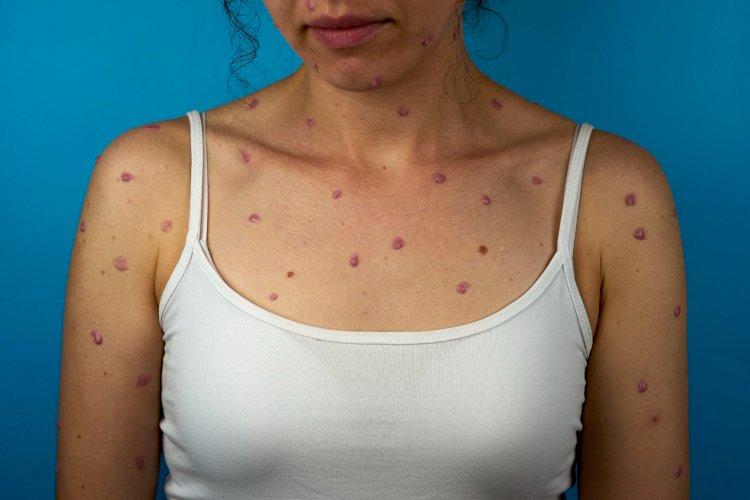Monkeypox: A Closer Look at Symptoms, Transmission, and Prevention
Monkeypox is a rare viral disease caused by the Monkeypox virus, belonging to the Orthopoxvirus genus in the family Poxviridae. Although its name suggests a connection to primates, the virus primarily circulates among small mammals in remote parts of Central and West Africa. Despite its rarity, monkeypox can cause significant morbidity and occasional mortality in humans, making it an important public health concern.

Origins and Transmission
The origins of monkeypox trace back to its discovery in laboratory monkeys in 1958, hence its name. However, it wasn't until 1970 that the first human case was reported in the Democratic Republic of the Congo. The virus is zoonotic, meaning it can be transmitted from animals to humans. The primary reservoirs of monkeypox are believed to be rodents, particularly squirrels, although other animals like primates can also carry the virus.
Human-to-human transmission typically occurs through respiratory droplets, direct contact with infected persons, or contact with contaminated objects such as bedding or clothing. In rare cases, human-to-human transmission can lead to localized outbreaks, often in rural communities with limited healthcare infrastructure.
Symptoms
Monkeypox has an incubation period of 5 to 21 days following exposure. Initial symptoms resemble those of many other febrile illnesses and include fever, headache, muscle aches, and fatigue. Within a few days, characteristic skin lesions begin to develop, progressing from macules to papules, vesicles, pustules, and finally crusts over a period of 10 to 14 days.
These lesions can be widespread and are often accompanied by lymphadenopathy (swollen lymph nodes), which is a key clinical feature that helps distinguish monkeypox from other similar diseases like chickenpox. In severe cases, complications such as pneumonia, encephalitis, and secondary bacterial infections can occur, particularly in immunocompromised individuals.
Diagnosis and Treatment
Diagnosing monkeypox can be challenging, especially in regions where it is not endemic and healthcare providers may have limited experience with the disease. Laboratory confirmation is essential and is typically achieved through polymerase chain reaction (PCR) testing of lesion specimens or serological tests to detect specific antibodies.
There is no specific antiviral treatment for monkeypox, and management primarily involves supportive care to alleviate symptoms and prevent complications. This may include antipyretics for fever, analgesics for pain relief, and antibiotics for secondary bacterial infections.
Prevention and Control
Preventing monkeypox relies on a combination of public health measures and vaccination. Since human-to-human transmission is possible, especially during outbreaks, strategies such as isolation of cases, contact tracing, and quarantine of exposed individuals are crucial for controlling the spread of the disease.
Vaccination against monkeypox has been shown to be highly effective in preventing infection and reducing disease severity. The smallpox vaccine, which contains a live vaccinia virus closely related to the monkeypox virus, has been used historically to control outbreaks. Additionally, a newer specific monkeypox vaccine has been developed and is recommended for individuals at high risk of exposure, such as healthcare workers in endemic areas.
In conclusion, while monkeypox remains a relatively rare disease, its potential for causing outbreaks and its significant morbidity underscore the importance of continued surveillance, research, and public health preparedness. Enhanced understanding of the virus, improved diagnostic capabilities, and widespread vaccination efforts are essential for controlling monkeypox and minimizing its impact on affected communities
#Monkeypox #Origins #Transmission #Symptoms #Diagnosis #Treatment #Prevention #Control #Vaccination #PublicHealth #Outbreaks #Healthcare #Surveillance #Research #Zoonotic #Disease #MonkeypoxVaccine #SmallpoxVaccine #PCRTesting #Antibiotics #SupportiveCare
Disclaimer:
The information provided in this article is for educational purposes only and should not be considered medical advice. If you have any health concerns or are experiencing symptoms, it is important to consult with a healthcare professional, such as a doctor or clinic, for proper diagnosis and treatment. Always seek the advice of your doctor or other qualified health provider with any questions you may have regarding a medical condition. Do not disregard professional medical advice or delay in seeking it because of something you have read in this article.
What's Your Reaction?





















